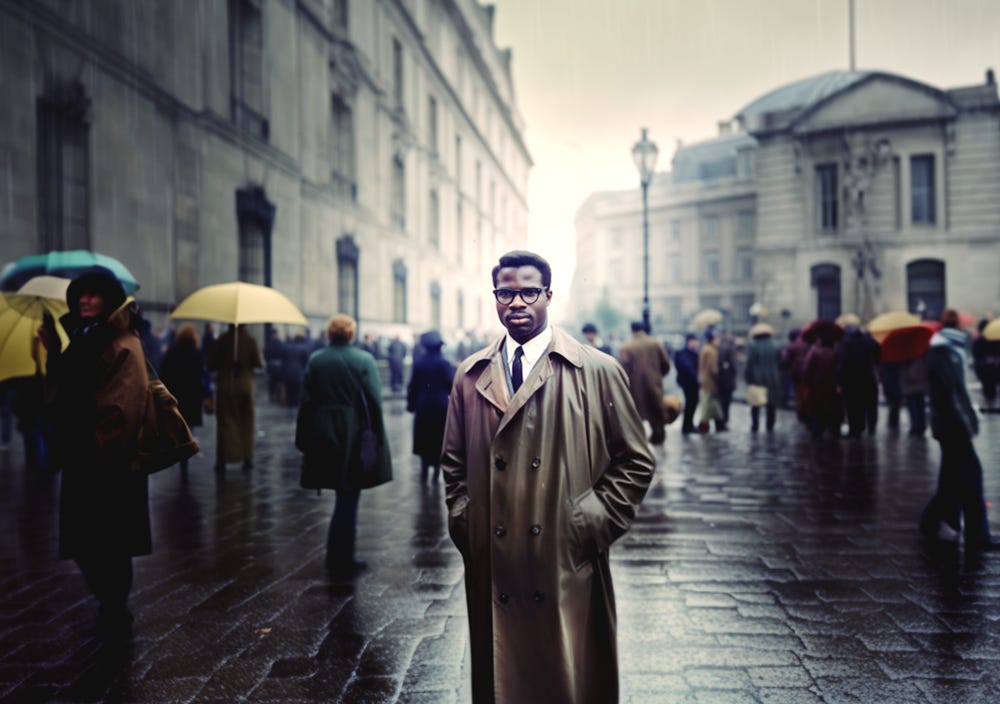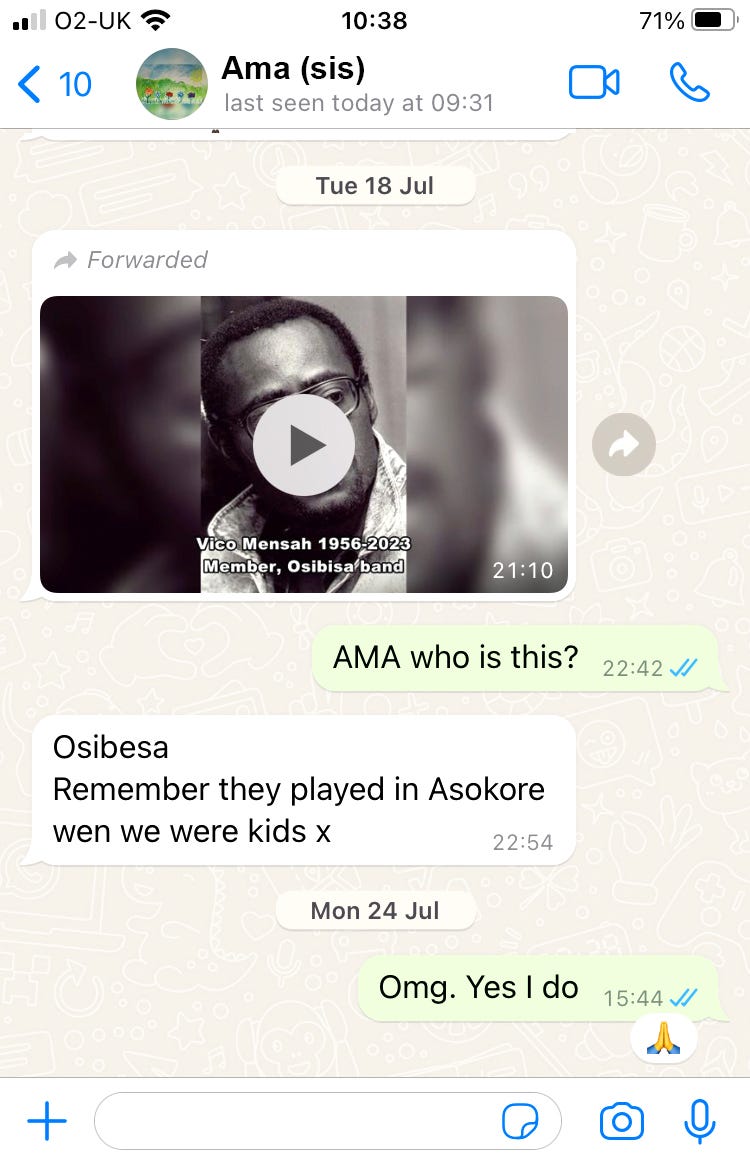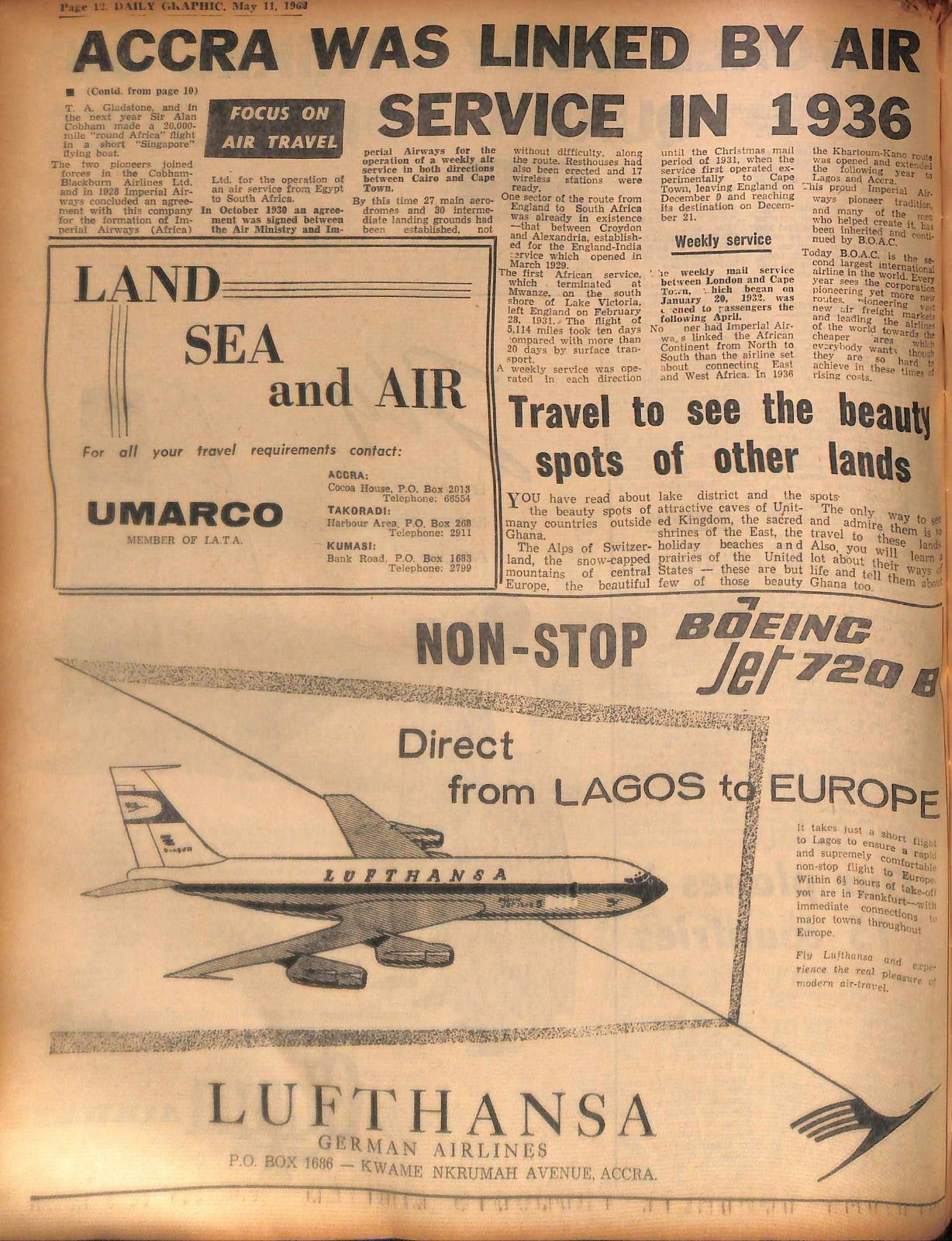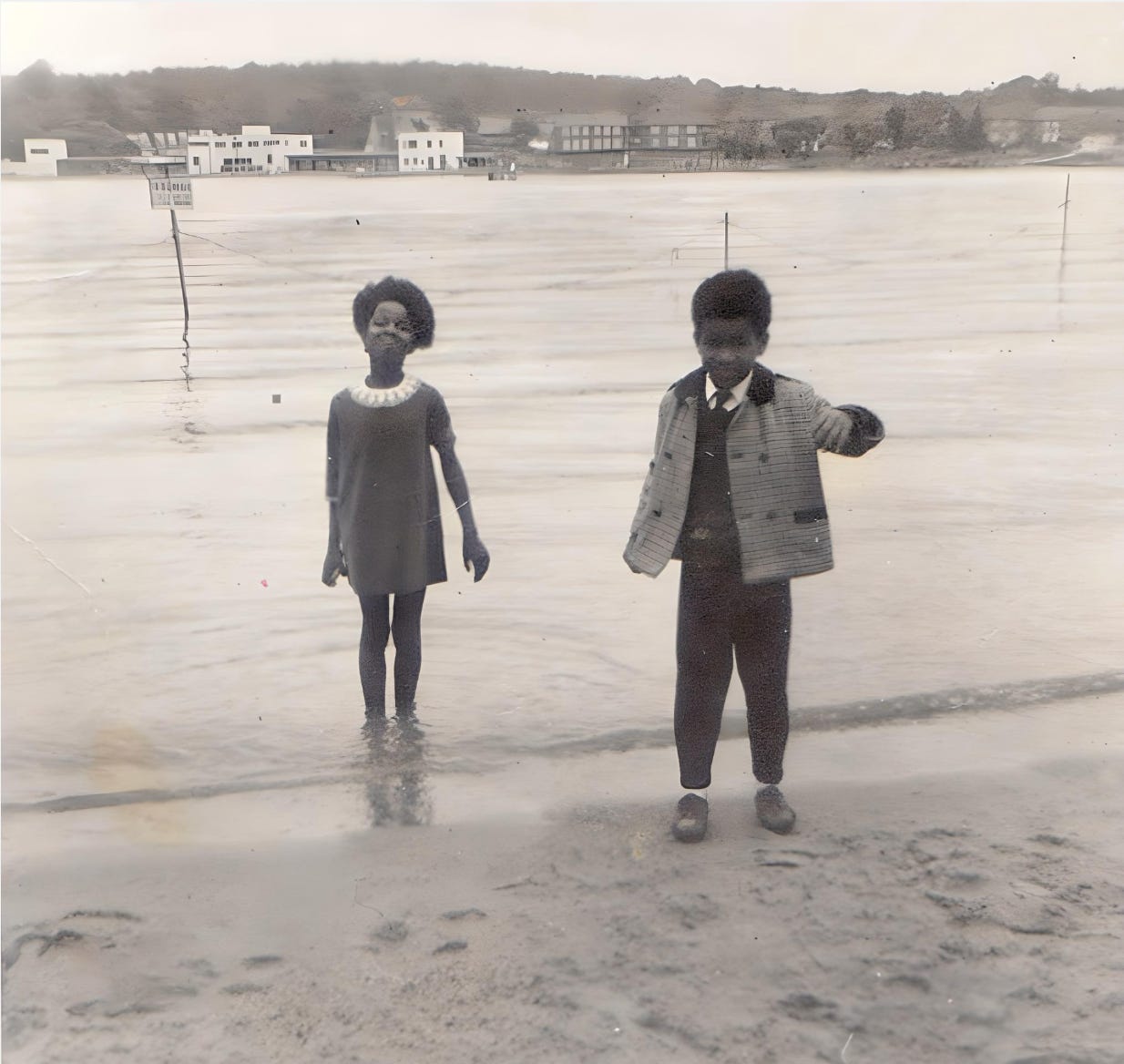
Prologue: An article underpinning specific and underdiscussed use of AI and new story styles particularly for specific audiences — by Dr David Dunkley Gyimah.
They’re a great band with an international touring reputation playing to huge audiences in Japan, Australasia, India, and across Africa and their single, “Sunshine Day” was a banger reaching number 17 on the UK Singles Chart.
Yet years back the mighty Osibisa played in a small town (some twenty miles) from Ghana’s second capital Kumasi called Asokore. The venue, a smallish dance-bar that could house less than 100 people, in what was at the time the only storeyed residential building in the town.
Clearly I’d forgotten this when my sisters sent me this whatsapp of the passing of band member Vico Mensah.

Osibisa played a set that went deep into the morning as punters in their torso-hung bell bottoms , Kente-skirts and platform shoes or charlie wote (sandals) raucously drank Star beer, and kept neighbours 200 metre either side awake. Having Osibisa play was the equivalent of Maze or Cameo playing in a small pub in London.
FAM
Our father, ever ambitious, ne’er afraid, and the music lover he was staged many groups like Osibisa. Others he tried to hire like Fela Kuti eluded him. Some twenty years later I would interview Kuti on BBC Black London that I co-hosted. I wondered what dad would have thought?
Mr Edward Yaw Gyimah was one of the “ones” in 1955 before Ghana, then called The Gold Coast, attained independence. He was a copper — a policeman dedicated to his job, earning a scholarship from Prime Minister Kwame Nkrumah’s newish government to travel abroad and acquire new skills from its soon-to-be ex-colonial ruler, Britain. Like many he found his way to the UK with his unique Gold Coast passport as a British subject.
Air travel by then was already established. Several ships too like the MV Accra made the journey between Accra and London. No news reel crew captured the arrival of Ghanaians who arrived first as a trickle.

The eminent historian Professor Hakim Adi writes in West Africans in Britain 1900–1960 how most of the West Africans travelling to the UK were mostly from Nigeria and the Gold Coast. West African student numbers gradually increased to a thousand in the UK in 1948. More recently (2021), the national census shows there are more Black Africans in the UK than Caribbeans; 1.5 million compared with 0.6 respectfully.
In the UK father abandoned the idea of building on his police credentials. He took up a business diploma and some. Yet his potential was never fully realised in the UK. When later with mum they started a family, the absence of extended networks took its toll. This photo, of my sister and I looking our Sunday best bookended a day out before we would end up with a series of foster parents.

HOME
Seventies Ghana was not the fulfilment of its Independence legacy. There seem to be one coup attempt after another, but father had enough of the UK. It was time to head back home.
And that journey was accompanied by his children two sisters, a brother and myself. In Ghana, his fortunes seem to change; music venues, the serious potential for heading a political party and presidential run, CEO offerings, and then a slew of business ventures — some more successful than others. And then Rawling’s government ceasing all his assets.
Father seemed to be building on the moniker he’d attracted amongst Ghanaians in South London. A sort or quasi abusia panin — someone who appeared to have all the answers. If you’re Ghanaian and have a problem, go see Edward was the refrain within the community, particularly for new arrivals.
His endeavours epitomised that Ghanaian can-do. A brief post yielded a stream of contributions from social media with users sharing thoughts and powerful stories about their parents and the difficulties in telling their stories.
MY NAME
That’s how we came to frame his promo when first released — The Ghanaian. Some later screen testing though revealed insights into the title’s social cognitive awareness.
This isn’ t unusual. Take The Irishman (2019). It was originally called I Heard You Paint Houses. And Rachel Boynton’s spell binding documentary Big Menabout the oil finds off Ghana and the politics that followed was originally called Power, Money, Greed & Oil when first aired on BBC’s Storyville.
There are many reasons why film titles change. Big Men perhaps would not have conveyed the semiotic heft that the film delivers to a non- African audience. Big Men, is a familiar term for West Africans. Similarly, whilst the label “Ghanaian” may yield any number of visual cues, to West African and Ghanaians, “Chairman’ carries a particular connotation or respect, without necessary a portfolio. Hence Chairman: The Ghanaian is the title we’ve adopted.
The real creative work though lies in the approach using AI to create media much like a painter would conceive of reality using brushes.
And there’s a bigger takeaway from this project that is emerging. Whilst AI has attracted frightening headline, some legit, it truly stands as a piece of technology which mastered closes the gap between heavily resourced knowledge acquisition cum trade craft and creative talent bereft of resources. AI in Communities is an initiative that examines this bringing together industry, academia and individual talent.
Over the years media creating the first digital international co-production between Ghana and South Africa, the Outernet expressed at Apple Inc, a breakthrough video platform, exhibitions, to mobile phone films shown in cinema like Bass Culture— charting reggae music’s contribution the UK — demonstrate a penchant for innovation being at heart of co-creations at @viewmagazine
But AI stands to be hugely beneficial for communities, with the caveat of getting it right. The work into the bouquet of projects ahead serves to underline how the future offers promising openings for future storytellers — from artistic impressionism and storyboards to actual scenes in a film.
Not quite on the scale of Hollywood, but a training and leveraging platform to facilitate more people who’ve historically found it difficult to gain resources for their films.
Dr David Dunkley Gyimah is a Reader/ Associate Professor of Innovation at Cardiff University. He’s a former broadcast journalist and producer and artist in residence at the Southbank Centre. More on background here